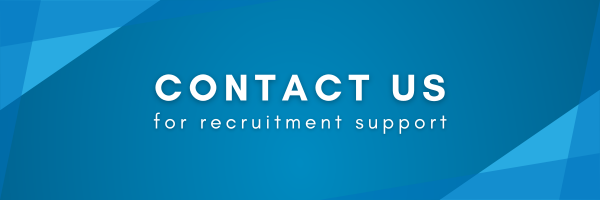In healthcare, the contributions of allied healthcare workers are indispensable. From occupational therapists to medical technologists and every specialty in between, these dedicated professionals play a pivotal role in delivering quality care to patients. In fact, allied health professionals make up more than half of the healthcare workforce in the United States.
Unfortunately, just as we are experiencing a shortage of nurses nationwide, the healthcare industry is also facing a shortage of allied healthcare workers. This shortage -- exacerbated by factors such as the aging population, increased demand for healthcare services across all settings, and the continued nursing shortage – can have detrimental effects on healthcare systems.
The term "allied health" is an umbrella term that covers a variety of healthcare specialties, including physical therapy, respiratory therapy, medical imaging (X-Ray techs, MRI techs, sonographers) and more. Despite their vital roles, allied healthcare workers often feel overshadowed by physicians and nurses. This lack of recognition, coupled with heavy workloads and limited career advancement opportunities, contributes to high turnover rates and burnout.
Attracting candidates in today’s job market can be challenging. So how can healthcare organizations across the country work to address hundreds of open allied positions? Hospitals, nursing centers and private clinics will need to think outside the box and pivot toward more creative ways to recruit (and retain) allied health professionals.
Endless Opportunities for Growth
In order to appeal to a younger workforce, recruiting efforts should focus on career growth and professional development. For example, hiring managers should highlight the diverse career paths available in allied health – this includes obtaining additional certifications to earn more money, working in a variety of settings and with different patient populations, and even the possibility of taking to the road to pursue a career as a travel allied healthcare professional.
Appeal to Adventurers
Travel allied health workers, like Respiratory Therapists and Surgical Technologists, play a crucial role in filling temporary staffing gaps in healthcare facilities, from freestanding emergency rooms to specialty hospitals. Offering competitive compensation packages, flexible work schedules, opportunity for overtime and even licensure reimbursement can help attract allied travelers and alleviate staffing shortages, especially in rural areas.
Get Out In The Community
Healthcare organizations should foster relationships with local colleges and universities. Through ongoing collaboration, hospitals and nursing centers can promote allied healthcare careers through targeted outreach programs, referral programs, in-person and virtual career fairs, and on-the-job shadowing opportunities.
Invest in the Long Game
Want to keep your allied healthcare professionals on your team for a long time? Show them that you’re invested by offering education and ongoing training opportunities. By providing scholarships, tuition reimbursement programs, and mentorship opportunities, healthcare organizations can will attract qualified talent and improve employee satisfaction, which is critical to improving retention.
Create a Healthy Workplace Culture
Creating a supportive work environment is another key retention factor. Recognizing contributions, providing opportunities for interdisciplinary collaboration, and fostering a culture of appreciation and respect can enhance job satisfaction and reduce turnover rates. Offering wellness programs, work-life balance initiatives, and employee assistance programs (EAP) can help address burnout and improve overall staff morale. Healthcare organizations should also work to ensure adequate staffing levels across all departments and optimize scheduling practices.
Make Their Jobs Easier – Get the Latest Tech and Equipment
Leveraging technology and telehealth solutions can help boost staff productivity and efficiency. As the saying goes, “Work smarter, not harder.” By implementing electronic health records, telemedicine platforms, and remote monitoring technologies, healthcare organizations can streamline workflows, reduce administrative burdens, and enhance the delivery of patient care.
Remember, allied healthcare professionals are responsible for much of the day-to-day operations in our healthcare system, from X-rays and CT scans to providing outpatient therapy to patients who had knee replacement surgery. By showing them that they are valued – even before they’re hired on -- and working intentionally to foster supportive clinical teams within your organization, you’ll set your facility up for success at the individual, departmental, and organizational level, resulting in higher employee satisfaction, better patient outcomes, and reduced turnover.
-1.png?width=292&height=64&name=LeaderStat%20Logo%20(4)-1.png)



-1.png?width=258&name=LeaderStat%20Logo%20(4)-1.png)